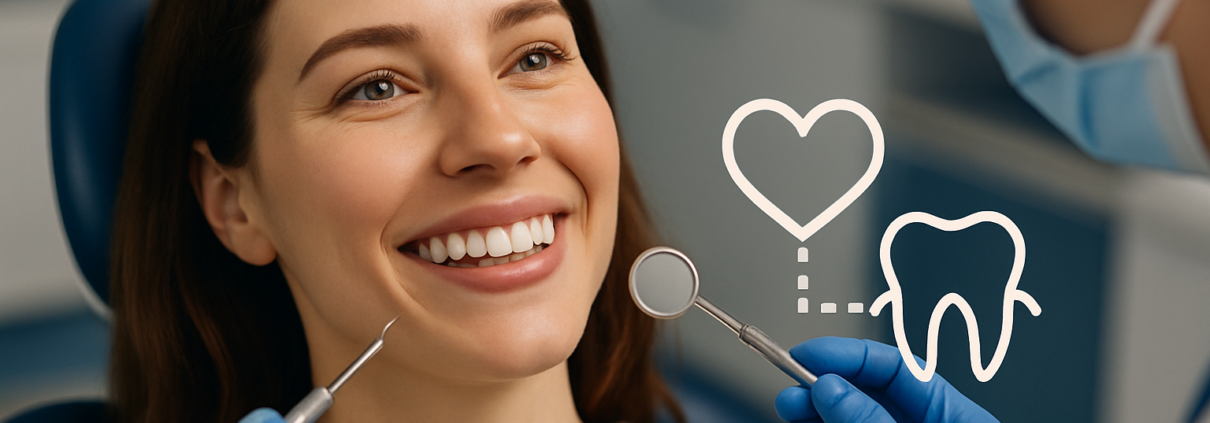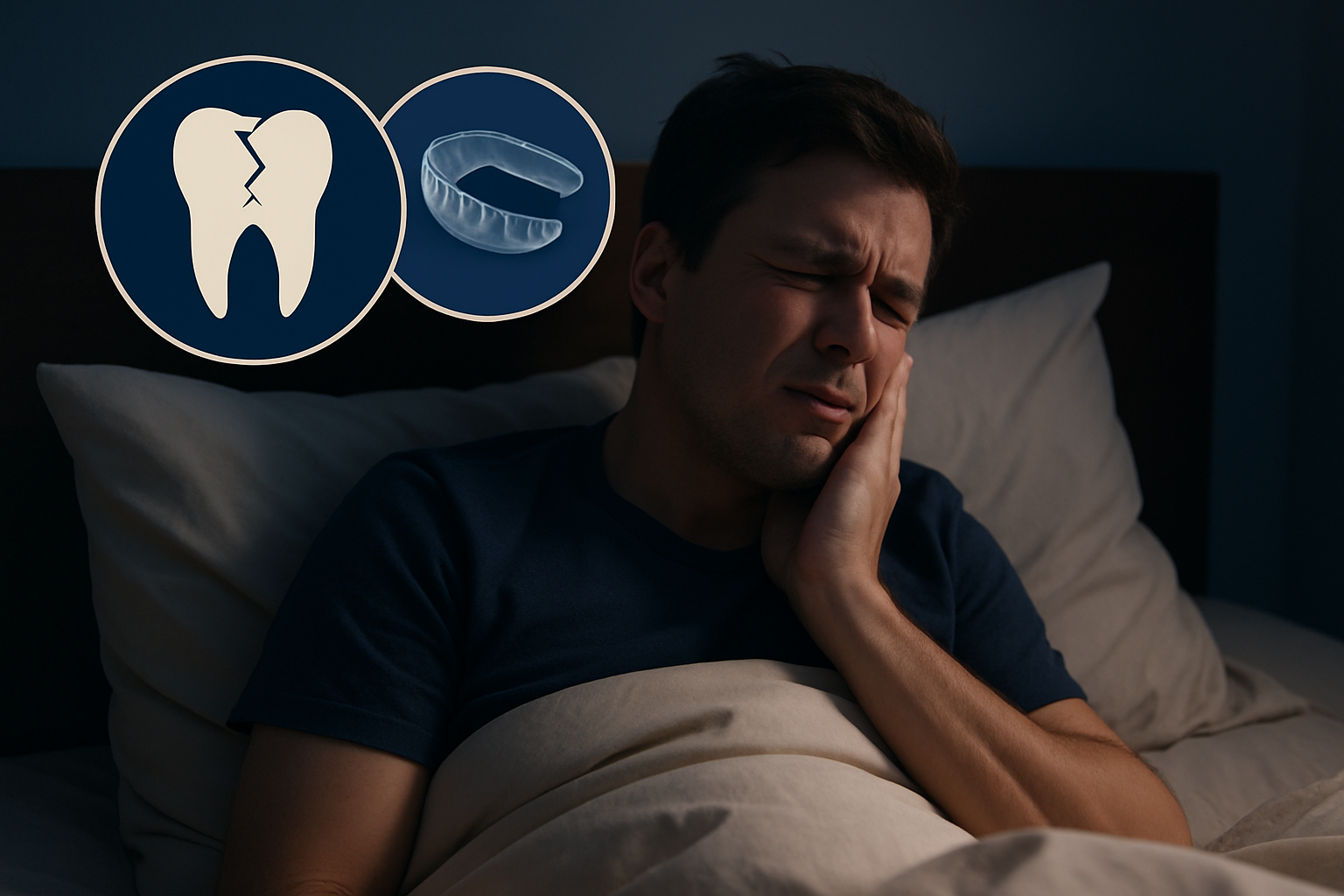Saliva isn’t glamorous. It doesn’t get as much attention as teeth or gums. But without it, your mouth would be in serious trouble. Saliva is the unsung hero of oral health—silently defending your teeth, protecting your gums, and keeping your breath fresh.
It’s not just spit; it’s your mouth’s built-in maintenance crew. Whether you’re munching on lunch or fast asleep, saliva works overtime to neutralize acids, wash away food particles, and support remineralization. Understanding the role of saliva in oral health can help you appreciate why dry mouth isn’t just uncomfortable—it’s a health hazard.
TLDR – Quick Guide
- What is Saliva? A clear fluid made of water, enzymes, and minerals produced by salivary glands.
- Why It’s Crucial: It protects teeth, aids digestion, and keeps your mouth balanced.
- Dry Mouth = Danger: Low saliva leads to cavities, infections, and gum disease.
- Your Dentist Can Help: Treatments include saliva stimulants, hydration advice, and diagnosing underlying issues.
- Bottom Line: Healthy saliva = healthy smile.
Detailed Breakdown
What Is Saliva Made Of?
Saliva is about 98% water, but it also contains:
- Electrolytes: Like calcium and phosphate, vital for tooth enamel.
- Enzymes: Such as amylase, which starts digesting starches.
- Proteins and Antibodies: That control bacteria and prevent infections.
Your salivary glands produce 0.5 to 1.5 liters of saliva daily. That’s enough to fill a wine bottle or two. All of that liquid plays a surprisingly important role in your oral—and overall—health.
Saliva’s Superpowers
Here’s why your mouth loves saliva:
- Neutralizes Acids: Every bite you take creates acid. Saliva buffers this acid to prevent enamel erosion.
- Remineralizes Teeth: Contains calcium and phosphate, which help rebuild enamel after minor damage.
- Fights Bacteria: Contains antibodies and proteins that keep harmful microbes in check.
- Prevents Tooth Decay: By washing away food particles and sugars, saliva reduces the fuel bacteria need to thrive.
- Helps with Digestion: Begins breaking down starches and makes chewing and swallowing easier.
- Aids in Taste and Speech: Keeps the mouth moist, which enhances taste perception and makes it easier to speak.
Without adequate saliva, your risk of developing cavities, gum disease, and infections skyrockets.
What Causes Dry Mouth?
Dry mouth, or xerostomia, occurs when your salivary glands don’t produce enough fluid. Common culprits include:
- Medications: Antidepressants, antihistamines, and blood pressure meds.
- Medical Conditions: Diabetes, Sjögren’s syndrome, and Parkinson’s disease.
- Cancer Treatments: Radiation to the head or neck can damage salivary glands.
- Dehydration: Not drinking enough water reduces saliva flow.
If your mouth feels sticky, your tongue is dry, and you’re constantly sipping water—those are signs your saliva production might be lacking.
Why It Matters to Oral Health
Lack of saliva isn’t just uncomfortable—it’s dangerous. With low saliva:
- Bacteria flourish unchecked.
- Enamel doesn’t get remineralized.
- Acid isn’t neutralized quickly.
- Eating and speaking become difficult.
This combination leads to a perfect storm for cavities, gum inflammation, and bad breath. It also increases your risk of oral thrush, a fungal infection caused by yeast overgrowth.
How Your Dentist Can Help
Dentists don’t just check your teeth—they also evaluate saliva flow. They can:
- Diagnose Dry Mouth: Through medical history and oral examination.
- Recommend Stimulants: Like sugar-free gum or saliva substitutes.
- Prescribe Medications: That stimulate salivary gland function.
- Advise on Hydration and Diet: Avoiding acidic foods and staying hydrated can help maintain healthy saliva levels.
- Protect Your Teeth: With fluoride treatments or sealants to compensate for low natural defenses.
If dry mouth is linked to medication, your dentist might coordinate with your physician to adjust prescriptions or add protective measures.
Key Takeaways
- Saliva is essential for oral health—it protects, repairs, and defends.
- Dry mouth increases the risk of tooth decay, infections, and discomfort.
- Common causes include medications, dehydration, and health conditions.
- Dentists can provide treatments and guidance to manage saliva issues.
- Taking saliva seriously can prevent a cascade of dental problems.
FAQs
How do I know if I have dry mouth?
Signs include constant thirst, sticky saliva, bad breath, and difficulty speaking or swallowing.
Can drinking water replace saliva?
Water helps, but it doesn’t contain the enzymes and minerals that saliva does. You need both for full oral health.
What foods or drinks help increase saliva production?
Sugar-free gum, tart foods like lemon (in moderation), and staying well-hydrated can stimulate salivary flow.
Are there products that replace saliva?
Yes, over-the-counter saliva substitutes and mouthwashes designed for dry mouth can offer relief.
Is dry mouth permanent?
It depends on the cause. If it’s medication-related or from a chronic condition, it may be long-term but manageable with treatment.
You brush and floss to avoid cavities and bad breath—but what if maintaining a healthy mouth could also protect your heart? Emerging science has made one thing increasingly clear: your oral health and heart health are more connected than you might think.
Gum disease, inflammation, and oral bacteria may play a role in everything from clogged arteries to heart infections. It’s not scare tactics—it’s biology. Knowing how to care for your mouth isn’t just about keeping your dentist happy. It might also help you sidestep serious cardiovascular risks.
TLDR – Quick Guide
- Oral Health and Heart Disease: There’s a strong link between gum disease and heart complications.
- The Culprit: Chronic inflammation and oral bacteria entering the bloodstream.
- Who’s at Risk: People with gingivitis, periodontitis, or poor oral hygiene routines.
- What to Do: Practice excellent oral hygiene and get regular dental checkups.
- Big Picture: A healthy smile may mean a healthier heart.
Detailed Breakdown
What Does the Research Say?
Several studies—like those published by the American Heart Association—have found a correlation between periodontal disease and cardiovascular problems, including heart attacks and strokes. While it’s still debated whether gum disease directly causes heart disease, the inflammatory response and bacterial spread are under scrutiny.
One 2020 study in Circulation found that people with advanced gum disease had a 49% higher risk of heart diseasethan those with healthy gums. That’s not something to shrug off.
The Biological Connection
Here’s the chain reaction:
- Bacteria Build-Up: Gum disease begins when plaque isn’t removed and bacteria thrive.
- Inflammation: This causes the gums to swell and eventually recede.
- Bloodstream Infiltration: Bacteria and inflammatory chemicals can enter your bloodstream through bleeding gums.
- Cardiovascular Impact: This triggers inflammation elsewhere in the body, including the arteries, increasing the risk of atherosclerosis (plaque buildup in arteries).
This isn’t theoretical—oral pathogens have been found in atherosclerotic plaques, suggesting real crossover between dental neglect and heart issues.
Risk Factors That Overlap
Many risk factors are shared between poor oral health and heart disease:
- Smoking
- Diabetes
- Chronic stress
- Poor nutrition
- Lack of medical care
If you check multiple boxes here, you need to double down on your oral care routine—stat.
The Role of Periodontal Disease
Periodontitis is not just “bad breath and bleeding gums.” It’s a chronic infection that attacks the gum line and the structures supporting your teeth. If left untreated, it can result in tooth loss—and potentially systemic complications like heart disease, as inflammation spreads beyond the mouth.
The CDC estimates that nearly 50% of adults over 30 have some form of periodontal disease. That’s half the population walking around with a hidden cardiovascular risk.
What Your Dentist Can Do
Your dentist is your first line of defense against systemic inflammation. A proactive dental care plan includes:
- Comprehensive Exams: Detect early signs of gum disease and other oral issues.
- Professional Cleanings: Remove tartar and plaque that daily brushing misses.
- Periodontal Therapy: Deep cleaning (scaling and root planing) can reverse early gum disease.
- Bacteria Testing: Some dentists now offer oral DNA tests to identify high-risk bacterial strains.
- Patient Education: Helping you understand how oral health habits directly affect your heart.
Partnering with your dentist is one of the most underrated ways to boost your overall wellness.
Key Takeaways
- Oral health and heart disease are deeply linked by inflammation and bacteria.
- Gum disease may increase your risk of cardiovascular issues, including heart attacks.
- Shared risk factors—like smoking and diabetes—amplify the danger.
- Regular dental checkups and cleanings are critical preventive measures.
- Your mouth isn’t isolated from your body—what happens in your gums doesn’t stay there.
FAQs
Can brushing my teeth really reduce heart disease risk?
Yes. Good oral hygiene reduces inflammation and harmful bacteria, both of which are linked to heart health risks.
What symptoms of gum disease should I look out for?
Watch for bleeding gums, persistent bad breath, gum recession, and loose teeth.
Are certain heart patients at greater risk from oral bacteria?
Yes. People with heart valve issues or previous infections like endocarditis are especially vulnerable.
How often should I visit the dentist to lower my heart risk?
Twice a year for checkups and cleanings is the standard, but patients with gum disease may need more frequent visits.
Can dentists detect signs of heart problems?
Not directly—but they can identify oral issues that increase heart disease risk and refer you for medical follow-up if needed.
If you’ve ever woken up with a sore jaw, dull headache, or chipped tooth and thought, “Did I do something in my sleep?” — chances are, you might be grinding your teeth. This under-the-radar habit, medically known as bruxism, affects millions of people, often without them even knowing it. Left unchecked, teeth grinding can wreak havoc on your mouth and lead to long-term damage.
The good news? You’re not powerless. With the right awareness, treatment, and guidance from your dentist, you can protect your smile and sleep a lot better.
TLDR – Quick Guide
- What is Bruxism? Teeth grinding or clenching, often while asleep.
- Who’s at Risk? Anyone—but especially those with stress, misaligned teeth, or sleep disorders.
- Why it’s Harmful: Can lead to cracked teeth, jaw pain, headaches, and worn enamel.
- Dental Help: Night guards, bite adjustments, stress management, and more.
- Bottom Line: Don’t ignore the signs—your dentist is your first line of defense.
Detailed Breakdown
What Exactly is Teeth Grinding?
Bruxism is the habitual grinding, clenching, or gnashing of teeth—either during the day (awake bruxism) or at night (sleep bruxism). It can range from occasional tension-related clenching to chronic, unconscious grinding that gradually wears down your teeth.
According to the American Dental Association, about 10-15% of adults experience bruxism, and it’s even more common in children, especially during growth spurts or stressful transitions like starting school.
What Causes Teeth Grinding?
There’s no single culprit. Bruxism tends to be multifactorial, influenced by:
- Stress and Anxiety: Emotional tension is one of the biggest triggers.
- Sleep Disorders: Conditions like sleep apnea often coexist with bruxism.
- Bite Misalignment: When your teeth don’t meet properly, your jaw may compensate unconsciously.
- Lifestyle Factors: Caffeine, alcohol, and certain medications (like SSRIs) are associated with higher grinding rates.
- Genetics: Sleep bruxism may run in families, suggesting a hereditary component.
The Damage It Can Do
Teeth grinding might seem harmless at first, but it can lead to serious consequences over time:
- Tooth Wear and Damage: Flattened or chipped teeth and even fractures.
- Jaw Pain and TMJ Disorders: Pain, tightness, and clicking in the temporomandibular joint.
- Gum Recession: Pressure from grinding may exacerbate gum issues.
- Headaches and Earaches: Resulting from constant muscle tension.
- Poor Sleep Quality: Disrupted rest for both the grinder and their partner.
Ignoring teeth grinding is like ignoring a leaking pipe—it gets worse the longer you wait.
How Your Dentist Can Help
Your dentist is the first person you should talk to if you suspect you’re grinding your teeth. They’ll look for telltale signs like worn enamel, jaw tenderness, or teeth misalignment. Then, they’ll develop a customized plan to protect your teeth and reduce grinding frequency.
Common treatments include:
- Custom Night Guards: These are dental appliances worn during sleep to cushion teeth and prevent contact.
- Occlusal Adjustment: Realigning bite surfaces to reduce grinding triggers.
- Botox Injections: Used in severe cases to weaken jaw muscles and reduce grinding intensity.
- Stress Management: Your dentist may refer you to stress-reduction strategies or cognitive behavioral therapy.
- Lifestyle Changes: Cutting back on stimulants like caffeine and alcohol, improving sleep hygiene, and avoiding chewing gum.
Some patients also benefit from orthodontic treatments if their bruxism stems from bite misalignment.
Key Takeaways
- Teeth grinding (bruxism) is more than an annoying habit—it’s a dental issue that requires attention.
- It’s commonly triggered by stress, misalignment, or sleep disorders.
- Symptoms include jaw pain, tooth damage, and poor sleep.
- Your dentist can help with custom solutions like night guards, bite correction, and referrals for stress therapy.
- Early intervention is key to preventing long-term damage.
FAQs
Is teeth grinding always a problem?
No, occasional grinding may not cause harm, but chronic bruxism can lead to serious dental issues and should be addressed.
How can I tell if I grind my teeth in my sleep?
Common signs include waking up with jaw pain, headaches, or noticing worn-down teeth. Your dentist can help confirm with a thorough exam.
Do children outgrow teeth grinding?
Many children who grind their teeth do outgrow it, but it should still be monitored by a dentist to prevent damage.
Are over-the-counter mouth guards effective?
While they can offer some protection, custom dental night guards are far more effective and comfortable for long-term use.
Can stress reduction alone stop bruxism?
Stress management can help significantly, especially for stress-induced grinding, but dental intervention is often still necessary.



